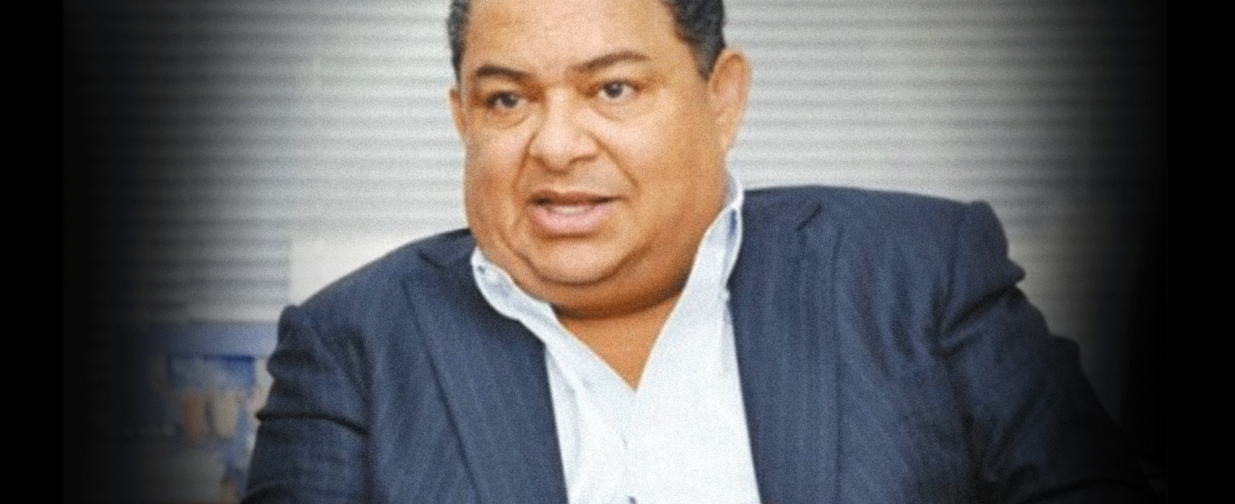
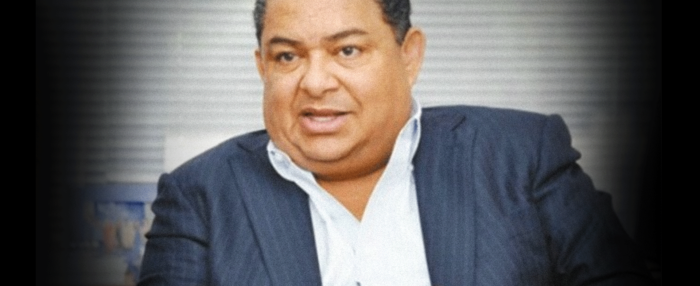
The so-called "insurance tsar" opened four offshore companies in a Caribbean island through the Panamanian law firm Mossack Fonseca. Corporación OFL, which consists of about 20 companies in his name, makes him one of the entrepreneurs in the insurance sector that has grown the most during the chavista government.
|
Getting your Trinity Audio player ready...
|
Six years before entrepreneur Omar Jesús Farías Luces appeared involved in the Banco de Madrid scandal of March 2015, as one of the Venezuelans investigated for money laundering in the subsidiary of Banca Privada de Andorra (BPA), the irregular management of his company in Ecuador were already mentioned in the confidential documents of Mossack Fonseca, the Panamanian law firm specialized in hiding fortunes of powerful people in tax havens, as confirmed by the global journalistic investigation Panama Papers.
Apart from the 20 companies that make up Corporación OFL (the entrepreneur's initials), with presence in Venezuela, Ecuador, the Dominican Republic and Panama, the so-called "insurance tsar" opened four offshore companies in British Anguilla, a Caribbean archipelago known for its white sand beaches and turquoise waters and as a destination for shell companies, a paradise to evade taxes and hide assets.
The relationship of Farías Luces with Mossak Fonseca goes back to 2007, when he registered as the sole director and partner of the three companies Win Enterprises Limited, Quinlan Services LTD and Albridge Marketing in Anguilla, through the efforts of the Panamanian law firm branch office in Caracas. That same year, he opened operations in Ecuador with his flagship, Seguros Constitución.
But in 2009, his reactivation as a client in the Panama parent company was discussed among managers of the Panamanian law firm for the pros and cons represented by the controversial Venezuelan owner, whose business activity has strikingly expanded during the years of Chavismo.
"I keep my fingers crossed. It can mean A LOT," wrote in an email dated October 13, 2009, the CEO of Mossfon Trust, one of Mossack Fonseca subsidiaries in Panama, when referring to Farías Luces. So that there are no doubts about the expectations about this "prospective client", the subject of the emails exchanged is "MAJOR CLIENT-VENEZUELA", with continued capital letters.
Although Farías Luces is not identified in the documents as a politically exposed person (PEP), there were reservations about him. On October 9, 2009, Mossack Fonseca/Mossfon* ordered by email to investigate the owner of Aseguradora Constitución in Venezuela, referring to him as a "SUPER-SUPER potential client ... A major, huge entrepreneur, but I think he should be in close contact with Chávez. If he is more or less acceptable, it might even be worth visiting him with Axel. His carrier is a MONSTER" (sic), emphasizes the general director of the Panamanian law firm.
But
on Monday, October 12, the law firm warned in a brief report about a story
published in the newspaper La Hora de Quito, in May 2009: Ecuador’s General
Prosecutor’s Office had opened an investigation against Farías
Luces for money laundering.
The audit of the Ecuadorian Superintendency of Banks and Insurance Companies
determined that the income as capital contributions had been used for expenses
other than the initial purpose, and that the funds were not property of Seguros
Constitución but of Farías himself.
They also mention documents that warn
that Farías managed to amass his current equity "thanks to his contact with key
figures of the government of Hugo Chávez".
Mossack Fonseca’s report of 10-12-2009 concludes that Farías "is an acceptable client; however, d proceed with great caution because of the high risk that he represents."
But the CEO of Mossfon dismissed those suspicions by assuring: "WE ALREADY HAVE RELATIONSHIPS with Farías and we can approve them as clients". He said in the same letter that the husband of a senior manager of the Panamanian law firm is an administrative manager of Seguros Constitución in Panama, since February 2009, and that Mossfon manager in Venezuela, Jeannette Almeida, "knows him very well," as he manages her affairs and even managed the purchase of the 14th floor in Torre de las Américas, the headquarters of Seguros Constitución in Panama, "a large insurance group with offices in Ecuador and the Dominican Republic."
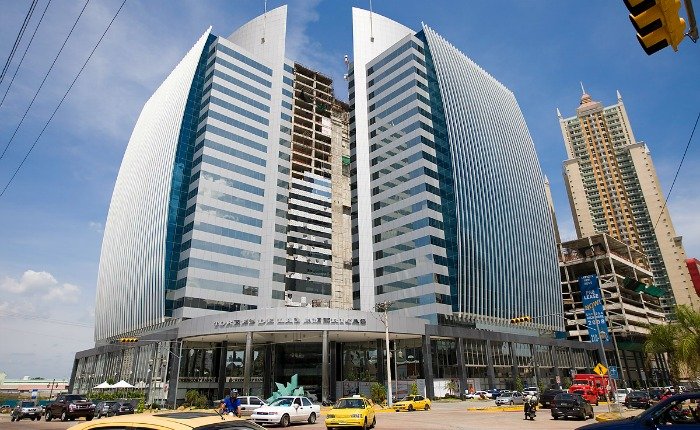
In that same email of 2009, the general manager of Mossfon details on the health of Farías Luces companies in Ecuador. The person in charge of opening the operation in Panama was sent to the Andean country to set things in order, as those in charge there "seem to be squandering money and the company was in the red."
A "rumor" adds up to the file of Farías Luces. In an internal email of December 8, 2009, it is emphasized that according to unofficial versions, the president of Seguros Constitución had been detained in Maiquetía by the Venezuelan political police when he was trying to flee from Venezuela through the Maiquetía International Airport. "Farías is linked to the drug trafficker "León Cachito", native of Güiria," in the state of Sucre, coincidentally, the same hometown of Farías.
Documents of Mossack Fonseca indicate that Farías Luces registered in 2007 three companies in the island of British Anguilla, British overseas territory, 953 km (592.16 mi) from Caracas, with a capital of 50 thousand dollars, respectively: Quinlan Services LTD (March 6), Albridge Marketing (August 23) and Win Enterprise Limited (February 27). The latter changed its name to Corporación OFL on October 16, 2009.
The three companies are classified as "International Bussines Company" (IBC) of British Anguilla, although their business activity is not specified.
Although the three companies were registered in the island of Anguilla, the domicile is in Caracas, specifically at Torre Nord, Avenida Tamanaco, El Rosal, an area that in recent years lost its shine as "the financial district of Caracas". In that same building, other Farías Luces’ health sector companies, like Net Asistencia, Dental Net and Farmacias Botimarket, operate a few meters from Seguros Constitución, the parent company of Corporación OFL, in the tower with the same name.
The efforts to register these companies in the Caribbean tax haven were directly made between the office of Mossack Fonseca Caracas, MF Consulting LTD, located at calle La Guairita, Chuao (near the embassy of Panama), in the hands of Jeannette Almeida and the subsidiary of the Panamanian law firm in British Anguilla, located in the Caribbean Commercial Centre, in the capital The Valley.
A fourth company in the name of Farías Luces was registered in Aguilla on November 15, 2007, Golden Crest International Limited. According to the documents of Mossack Fonseca, this firm signed a loan agreement for a King Air B200G aircraft, manufactured by Hawker Beechcraft Corporation, registration number YV3661T (sic), previously N32029, property of Inversiones Aeronet, one of the companies in Venezuela of the Eastern businessman.
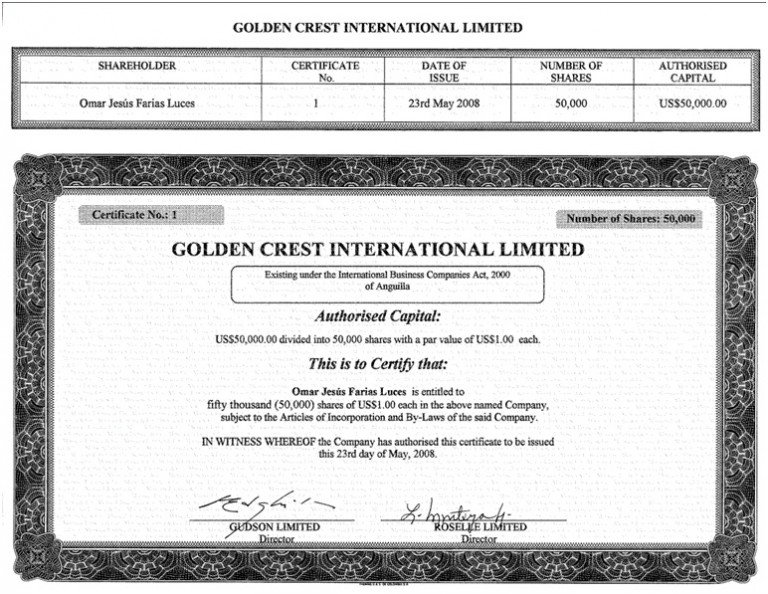
Another
document from the files of Mossack Fonseca indicates that the King Air BY-029
was purchased on January 11, 2008 by Golden Crest International Limited to
Caribbean Aviation for
US$ 5.2 million.
The path of Farías Luces relationships with the Bolivarian government can also be traced through this plane. On August 22, 2009, his company Golden Crest International Limited provided transfer services in the Hawker Beechraft B200GT BY- 2 N32029 to a commission of the National Assembly chaired by Darío Vivas, from Maiquetía airport in Caracas to La Chinita airport in Maracaibo, in order to attend an urgent meeting with President Hugo Chávez in Cabimas, for which the aircraft deviates the route without authorization from the National Institute of Civil Aeronautics (INAC), as recorded in a decision of the Supreme Court of October 29, 2009.
The activity to which these companies, created through Mossack Fonseca, are engaged in was one of the questions that both Runrun.es and the International Consortium of Investigative Journalists (ICIJ) prepared for Farías Luces. On May 3, 2016, they requested in writing to have an interview with the president of Seguros Constitución at the headquarters at Avenida Venezuela, El Rosal, but they got no response. They also sent an email and called by phone to Seguros Constitución during the week from Monday, May 2 to Friday, May 6, 2016, to request an interview, but had no response.
The telephone numbers on the RNC (National Registry of Contractors) card "are not assigned to any user or landline telephone". Likewise, the calls made to the MF Consulting LTD office in Caracas are not answered.
The remarkable growth of Farías Luces’ businesses in recent years has raised suspicions in a context of economic contraction and high pressure against the private investor. With the exception of Seguros Constitución, which was purchased in 2005, many of the companies making up its corporation were created or acquired during the second six-year term of Hugo Chávez (2007-2013) when all the economic indicators in Venezuela began to deteriorate. He is a businessman born in revolution.
Farías Luces does not get uncomfortable when related to the Chávez government. "In Venezuela, no company can say that it does not work with the government because the government is the main buyer. All insurance companies and all insurance brokers and intermediaries in Venezuela are behind or have accounts of the Venezuelan government. It is impossible to grow in Venezuela if you do not provide services to the government, "he said in a video interview included in a report by Ecuadorian journalist Nuria Pernia (September 16, 2014).
His main company, Seguros Constitución, covered the policies of main government agencies, like Petróleos de Venezuela, PDVSA, whose contracts included around 100 million dollars a year of surcharges between insurance policies and national and international reinsurance policies, according to a report dated August 6, 2007 of El Nuevo Herald.
Farías Luces is the president and owner of 99.79% of the shares of Seguros Constitución, a company with active status to enter into contract with the Government, as indicated by the National Registry of Contractors (RNC). From 2007 to 2011, he provided services to public entities like Inces (National Institute of Qualification and Socialist Education), Ministry of Popular Economy, Che Guevara Mission Foundation (technical, ethical and political training program with socialist values), Onapre (National Budget Office), National Housing Institute, Cadafe (current Corpoelec, National Power Company), Metropolitan District of Caracas, and Ministry of Energy and Petroleum, among others.
Its origins are reconstructed based on inquiries within the sector. "El Negro Farías", as he is also known, started as an insurance agent of Seguros La Seguridad, at the time when the company belonged to the Boulton Group, a family of long commercial lineage in Venezuela. Then he made incursions into the area of ??brokerage companies by buying two companies: Vida y Patrimonio and Veneasesores, which were among the top 10 brokerage companies in the country. He included a reinsurance brokerage company, and in 2005, he acquired Sofitasa, which would become Seguros Constitución.
His rapid development in the insurance sector is attributed to his relationship with the deceased president Hugo Chávez. Thanks to his contacts with the senior government —of which he always showed off, according to acquaintances—, he became president of the board of directors of the Chamber of Insurers and president of the extinct National Insurance Council.
He introduced himself in 2006 as the legal representative of companies Inversiones FLD and Hospital Net, subsidiaries of company Servicios Integrales de Salud (SISA), registered just two days before the signing of a contract with the Government of Carabobo, ruled by the commander of the National Guard, Luis Felipe Acosta Carlez. It was created to manage Maternidad del Sur in Valencia.
In 2007, Farías Luces consolidated Corporación OFL, thus covering not only the insurance sector but also health, agricultural production, transport, shipping and even funeral services. Indeed, it is the one that channels the social responsibility projects of the business group. In August of that year, he began his international expansion by opening companies in Ecuador (after buying the insurer Memoser), followed by Panama (2008) and the Dominican Republic (2009), "all instinctively," he has declared to the press.
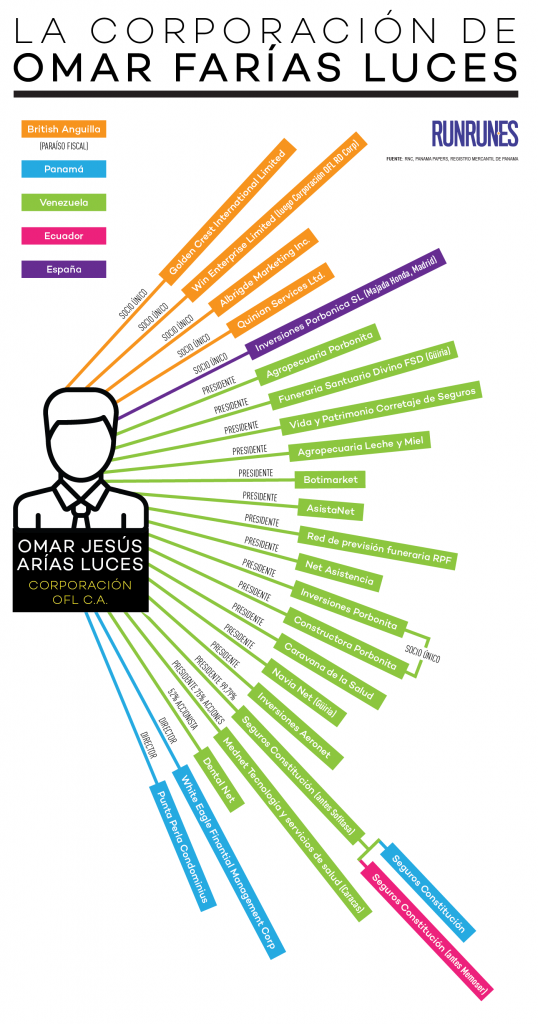
But he has stumbled in international destinations. Some sources in the sector note that, as he significantly grew, he has also lost power, which is in part associated with the time when Chávez became ill, just when PDVSA changed its insurance company. Seguros Constitución was replaced by La Occidental, owned by businessman Víctor Vargas.
In 2009, in Ecuador, two years after it was installed, the National Administration of the Private Insurance System of the Ecuadorian Superintendence of Banks ordered the office of the assistant director of asset laundering to conduct a special audit of Seguros Memoser (which still used that name despite having been purchased by the Venezuelan Seguros Constitución) to establish the origin of the funds contributed by the largest shareholder of that company, i.e. Farías Luces.
The National Assembly of Ecuador also opened an audit of the source of these funds, apart from taking procedures to prevent money laundering.
Also in Panama, Seguros Constitución fell into the eye of the authorities. On August 4, 2015, the Superintendency of Insurance and Reinsurance of Panama ordered the intervention of the subsidiary in the isthmus of the Venezuelan insurance company. The agency had received multiple claims from third parties and insured that the insurance company was not honoring the payment of claims. In a statement issued the following day, Faría Luces clarified that the measure would be temporary after agreeing on the capitalization of the company and the adaptation of the processes within the next 10 days.
The controversy has marked the business trajectory of Farías Luces. The latest turmoil he was involved in was that of Banco de Madrid, in March 2015, when he was included in a list of Venezuelans accused of money laundering: Nervis Villalobos, former deputy energy minister; Javier Alvarado, former Vice Minister of Electrical Development and former director of Bariven; Alcides Rondón, former deputy minister of Public Safety; Carlos Aguilera, former director of the Bolivarian National Intelligence Service (Sebin) and Francisco Jiménez, former director of PDVSA.
A year later, on February 19, 2016, the Financial Crime Enforcement Networks (Fincen), which reports to the United States Treasury, withdrew the accusation against Banco Madrid without further explanations. There is no knowledge either of report with criminal accusations of the Commission for the Prevention of Money Laundering and Monetary Infractions (Sepblac), and the Spanish Prosecutor's Office withdrew the accusation against the directors. However, the decision to continue investigating suspicious clients for money laundering is pending. Farías Luces would then remain targeted by the authorities against international financial crime.
Adrián Perdomo Mata has just entered the list of sanctioned entities of the US Department of the Treasury, as president of Minerven, the state company in charge of exploring, exporting and processing precious metals, particularly gold from the Guayana mines. His arrival in office coincided with the boom in exports of Venezuelan gold to new destinations, like Turkey, to finance food imports. Behind these secretive operations is the shadow of Alex Saab and Álvaro Pulido, the main beneficiaries of the sales of food for the Local Supply and Production Committee (Clap). Perdomo worked with them before Nicolás Maduro placed him in charge of the Venezuelan gold.
Gassan Salama, a Palestinian-cause activist, born in Colombia and naturalized Panamanian, frequently posts messages supporting the Cuban and Bolivarian revolutions on his social media accounts. But that leaning is not the main sign to doubt his impartiality as an observer of the elections in Venezuela, a role he played in the contested elections whereby Nicolás Maduro ratified himself as president. In fact, Salama, an entrepreneur and politician who has carried out controversial searches for submarine wrecks in Caribbean waters, found his true treasure in the main social aid and control program of Chavismo, the Clap, for which he receives millions of euros.
While the key role of Colombian entrepreneurs Alex Saab Morán and Álvaro Pulido Vargas in the import scheme of Nicolás Maduro’s Government program has come to light, almost nothing has been said about the participation of the traders who act as suppliers from Mexico. These are economic groups that, even before doing business with Venezuela, were not alien to public controversy.
Even though there are new brands, a new physical-chemical analysis requested by Armando.Info to UCV researchers shows that the milk powder currently distributed through the Venezuelan Government's food aid program, still has poor nutritional performance that jeopardizes the health of those who consume it. In the meantime, a mysterious supplier manages to monopolize the increasing imports and sales from Mexico to Venezuela.
Turkey and the coastal emirates of the Arabian Peninsula are now the homes of companies that supply the main social -and clientelist- program of the Government of Venezuela. Although the move from Mexico and Hong Kong, seems geographically epic, the companies has not changed hands. They are still owned by Colombian entrepreneurs Alex Nain Saab Morán and Álvaro Pulido Vargas, who control since 2016 a good part of the Import of food financed with public funds. Around the world for a business.
Since the borders to Colombia and Brazil are packed and there is minimal access to foreign currency to reach other desirable destinations, crossing to Trinidad and Tobago is one of the most accessible routes for those in distress seeking to flee Venezuela. Relocating them is the business of the 'coyotes' who are based in the states of Sucre or Delta Amacuro, while cheating them is that of the boatmen, fishermen, smugglers and security forces that haunt them.
When Vice President Delcy Rodríguez turned to a group of Mexican friends and partners to lessen the new electricity emergency in Venezuela, she laid the foundation stone of a shortcut through which Chavismo and its commercial allies have dodged the sanctions imposed by Washington on PDVSA’s exports of crude oil. Since then, with Alex Saab, Joaquín Leal and Alessandro Bazzoni as key figures, the circuit has spread to some thirty countries to trade other Venezuelan commodities. This is part of the revelations of this joint investigative series between the newspaper El País and Armando.info, developed from a leak of thousands of documents.
Leaked documents on Libre Abordo and the rest of the shady network that Joaquín Leal managed from Mexico, with tentacles reaching 30 countries, ―aimed to trade PDVSA crude oil and other raw materials that the Caracas regime needed to place in international markets in spite of the sanctions― show that the businessman claimed to have the approval of the Mexican government and supplies from Segalmex, an official entity. Beyond this smoking gun, there is evidence that Leal had privileged access to the vice foreign minister for Latin America and the Caribbean, Maximiliano Reyes.
The business structure that Alex Saab had registered in Turkey—revealed in 2018 in an article by Armando.info—was merely a false start for his plans to export Venezuelan coal. Almost simultaneously, the Colombian merchant made contact with his Mexican counterpart, Joaquín Leal, to plot a network that would not only market crude oil from Venezuelan state oil company PDVSA, as part of a maneuver to bypass the sanctions imposed by Washington, but would also take charge of a scheme to export coal from the mines of Zulia, in western Venezuela. The dirty play allowed that thousands of tons, valued in millions of dollars, ended up in ports in Mexico and Central America.
As part of their business network based in Mexico, with one foot in Dubai, the two traders devised a way to replace the operation of the large international credit card franchises if they were to abandon the Venezuelan market because of Washington’s sanctions. The developed electronic payment system, “Paquete Alcance,” aimed to get hundreds of millions of dollars in remittances sent by expatriates and use them to finance purchases at CLAP stores.
Scions of different lineages of tycoons in Venezuela, Francisco D’Agostino and Eduardo Cisneros are non-blood relatives. They were also partners for a short time in Elemento Oil & Gas Ltd, a Malta-based company, over which the young Cisneros eventually took full ownership. Elemento was a protagonist in the secret network of Venezuelan crude oil marketing that Joaquín Leal activated from Mexico. However, when it came to imposing sanctions, Washington penalized D’Agostino only… Why?
Through a company registered in Mexico – Consorcio Panamericano de Exportación – with no known trajectory or experience, Joaquín Leal made a daring proposal to the Venezuelan Guyana Corporation to “reactivate” the aluminum industry, paralyzed after March 2019 blackout. The business proposed to pay the power supply of state-owned companies in exchange for payment-in-kind with the metal.